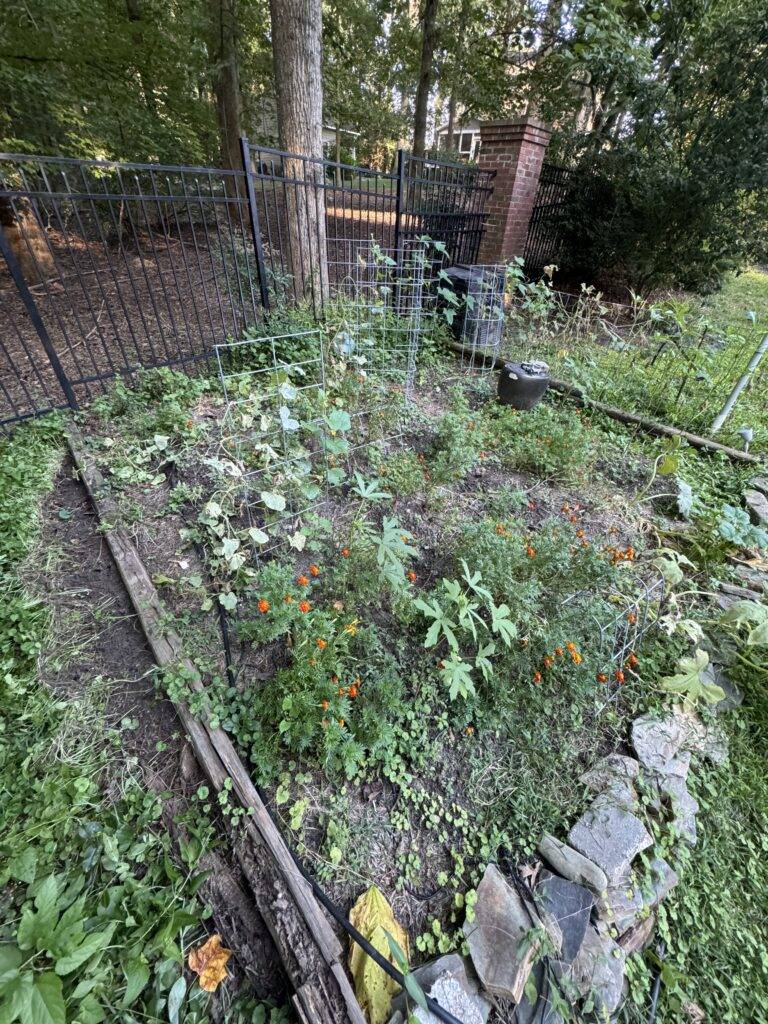I stood in my garden yesterday, looking at the chaos that had taken over. Weeds wrapped around what little was left of the crops, their invasive roots strangling the life out of the plants I’d so carefully chosen months ago. The irrigation system, the lifeline of the garden, had been broken for weeks—maybe even months. I knew it, but I hadn’t fixed it. I hadn’t watered, weeded, or tended to my garden. And yet, all season, I’d been blaming the weather. The extreme heat, the unexpected rain, the dry spells. Those were the reasons I’d told myself my harvest was sparse this year.
But as I stood there, staring at the mess I had allowed to take root, the truth was glaringly obvious. It wasn’t the weather that had failed me. It was me. I had neglected the very thing that needed my care and attention. I had let the garden go untended, and now, I was reaping the results of that neglect.
This hit me hard, especially when I remembered the blog post I wrote at the end of last year. Back then, I was full of plans and optimism, laying out my strategy for the perfect garden—weed management, crop rotation, and the careful planning of what to grow and where. I was ready for a fruitful year, confident that I had set everything up for success. But somewhere along the way, I let it all slip. The plans were solid, but the execution fell apart.
How often do we do this in our work? In real estate, it’s easy to point the finger at the market—interest rates, inventory, economic uncertainty. We convince ourselves that these external factors are why our numbers aren’t where they should be. But let me ask you: when was the last time you tended to your database? When was the last time you truly connected with your clients, nurtured those relationships, and watered the seeds you planted?

Your database is your garden. It requires attention, care, and constant nurturing. If you let it go untended—if you let the weeds of neglect grow wild, if you ignore the broken systems that are meant to keep it thriving—then you’ll find yourself with a poor yield. And no amount of blaming the market will change that.
It’s not about perfection. Gardens are messy. Life is messy. But if you want to see growth, if you want to harvest the fruits of your labor, you’ve got to do the work. You’ve got to show up, get your hands dirty, and tend to the things that matter.
So, let this be a reminder—both to you and to me—that we are responsible for the gardens we grow. If we want abundance, we must nurture it. If we want a bountiful harvest, we must tend to our soil, pull the weeds, and fix what’s broken.
The market will always have its seasons, just as the weather does. But our success, our yield, depends on how we care for what we’ve planted. Let’s stop blaming the weather and start tending to our gardens.

